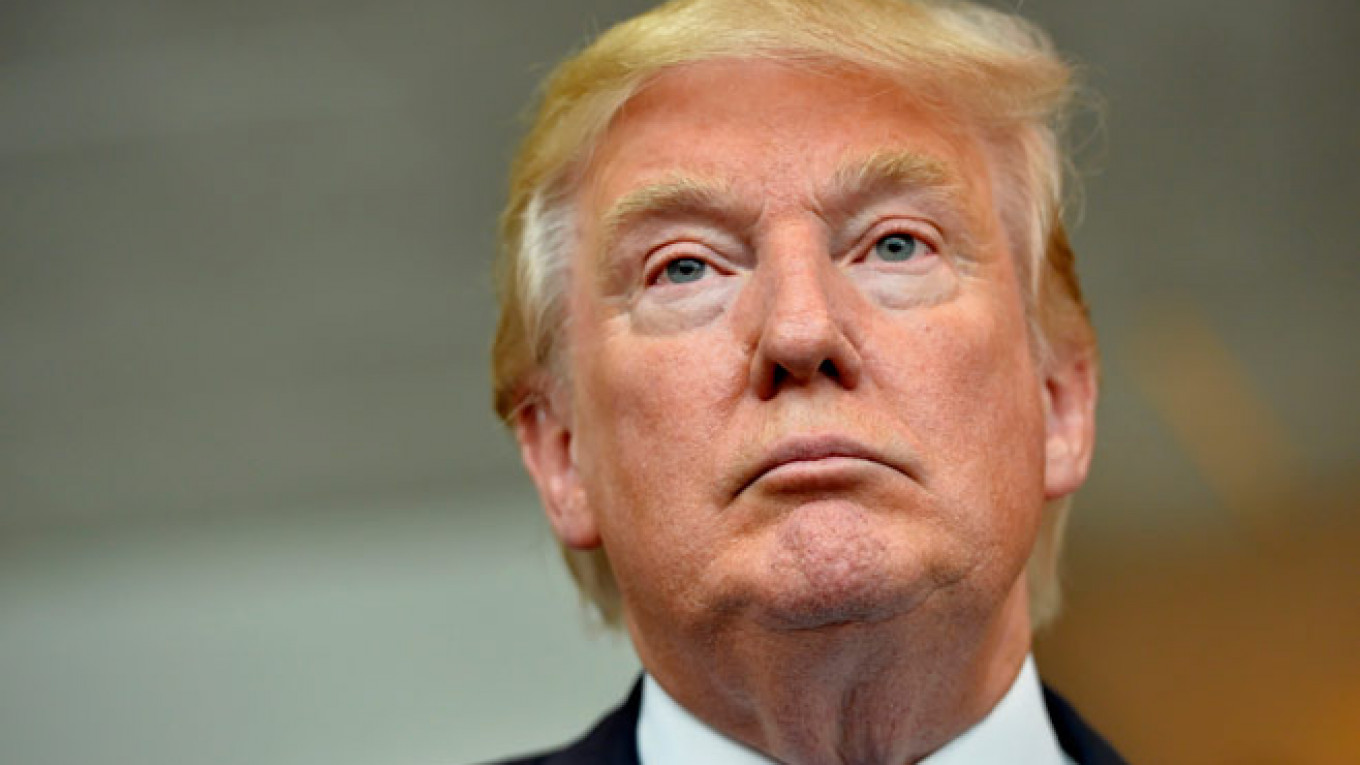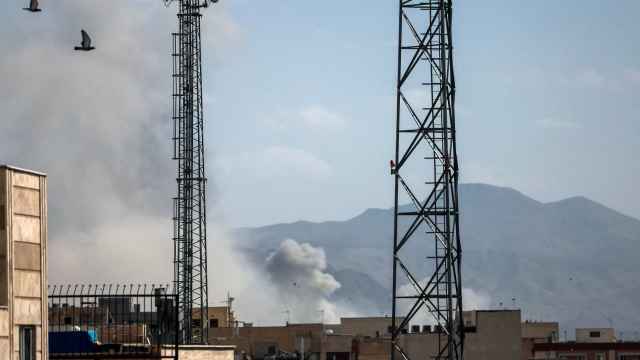Donald Trump might hope that he will have a great relationship with President Vladimir Putin if he gets elected into the White House, but the problem is that Russia’s relationship with the United States is driven by political elites in the two countries who have their own divergent interests, Russian America-watchers told The Moscow Times on Wednesday.
Trump is the front-runner in U.S. public opinion polls for the Republican Party nomination, but it is unlikely that he will win it and become president, experts agreed. Even if the Republican Party nominates him, he will be constrained by its long-term policies and the power of the U.S. Congress, they said.
“He doesn’t have a team, he is not connected with the establishment and he has already made many enemies,” said Yury Rogulyov, director of the Franklin Roosevelt U.S. Policy Studies Center at Moscow State University.
“He talks about finding common language, but this is not enough. Nobody will allow him to make a U-turn in U.S. foreign policy — President Barack Obama said many things too [during his election campaign], but the political elite did not allow him to do much,” he said in a phone interview.
Trump and Putin share many traits — they are direct, outspoken and like to make deals based on pragmatic interest. Putin is often credited with restoring a sense of pride in his country among Russians, while Trump’s campaign slogan is “Make America Great Again!”
Both are anti-mainstream and self-confident people who don’t feel constrained by political correctness. Both belong to closely knit systems: Putin is a graduate of the Soviet security apparatus, Trump belongs to the American corporate world. Both want to be portrayed as genuine men who are not part of the establishment.
Radiating confidence on every policy point he wants to pursue, Trump has already said multiple times that he will have a “great relationship” with Putin. It was the U.S. that made Putin “the world leader,” by not showing leadership itself, he claimed.
“I would be willing to bet I would have a great relationship with Putin,” Trump told Fox News in June, shortly after announcing his campaign.
Trump didn’t specify how he would build this relationship, saying that his confidence is based on a “feeling.”
Moreover, the relationship would be so good that Putin would hand Edward Snowden over to the U.S., Trump told CNN in July.
“Look, if I’m president, Putin says [to Snowden] ‘Hey, you’re gone.’ I guarantee you this,” Trump said in a televised interview.
Snowden is a former U.S. National Security Agency contractor who turned into a global surveillance whistle-blower and obtained temporary political asylum in Russia in 2013.
As an attempt to start building bridges, Trump has already offered Putin some praise.
“Putin has no respect for our president. He’s got tremendous popularity in Russia, they love what he is doing, they love what he represents,” he told Fox News.
According to Ivan Kurilla, a professor at the European University in St. Petersburg, the truth is that what Trump says about Putin is actually directed at Obama.
“While Russia has become an apparent failure for the Obama administration, Trump says that he can deal with Putin, just like during the last election when Obama was proud of the ‘reset’ in the U.S.-Russian relationship and Mitt Romney was calling Russia the main geopolitical foe. He was doing it in order to criticize the White House, not Russia,” Kurilla said in written comments.
“The Kremlin is hoping that the future U.S. president, whoever it will be, will change policy toward Russia and I am confident that Moscow is ready to deal with him or her. But it remains a question whether the new American leader will be ready for such a turn. The election rhetoric will tell us nothing about it,” he said.
Trump has promised that he will impose harder sanctions on Iran in order to make a deal “from strength,” meaning that Iran’s oil will not hit the market, increasing the chances that the price of oil — Russia’s main export — will go up.
In addition, Trump said he would want to put more pressure on China, including an imposition of a tariff on its exports into the U.S.. This could empower Russia in the eyes of the Chinese leadership and drive the two closer together.
Trump has also promised to crush militants of the Islamic State militarily. Given Russia’s concern about the spread of terrorism south of its borders, this would be well received by Moscow.
Russian columnist for Bloomberg View Leonid Bershidsky has compared Trump with “brash, showy businessmen,” and Yevgeny Chichvarkin and Boris Berezovsky in particular. The two fled Russia for London in order to avoid what they said was politically motivated criminal prosecution at home. Putin eats such people “for lunch,” according to Bershidsky.
“Eventually, however, even Trump would come to understand that he was being mocked and manipulated, the Putin behavior that Obama can’t stand. Trump’s disappointment might produce an even more bitter confrontation than the one between Putin and Obama,” Bershidsky wrote in a column published at the end of July.
Contact the author at [email protected]
A Message from The Moscow Times:
Dear readers,
We are facing unprecedented challenges. Russia's Prosecutor General's Office has designated The Moscow Times as an "undesirable" organization, criminalizing our work and putting our staff at risk of prosecution. This follows our earlier unjust labeling as a "foreign agent."
These actions are direct attempts to silence independent journalism in Russia. The authorities claim our work "discredits the decisions of the Russian leadership." We see things differently: we strive to provide accurate, unbiased reporting on Russia.
We, the journalists of The Moscow Times, refuse to be silenced. But to continue our work, we need your help.
Your support, no matter how small, makes a world of difference. If you can, please support us monthly starting from just $2. It's quick to set up, and every contribution makes a significant impact.
By supporting The Moscow Times, you're defending open, independent journalism in the face of repression. Thank you for standing with us.
Remind me later.






